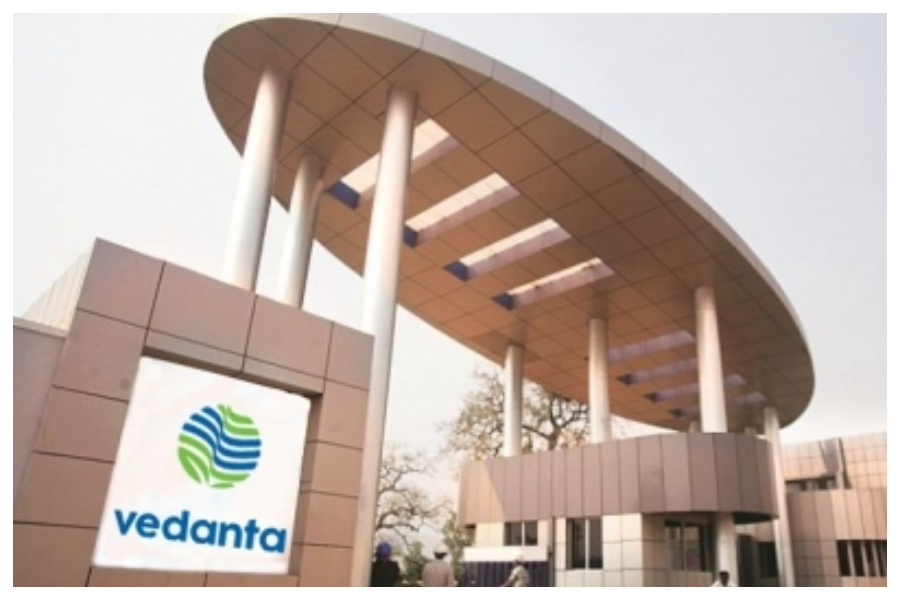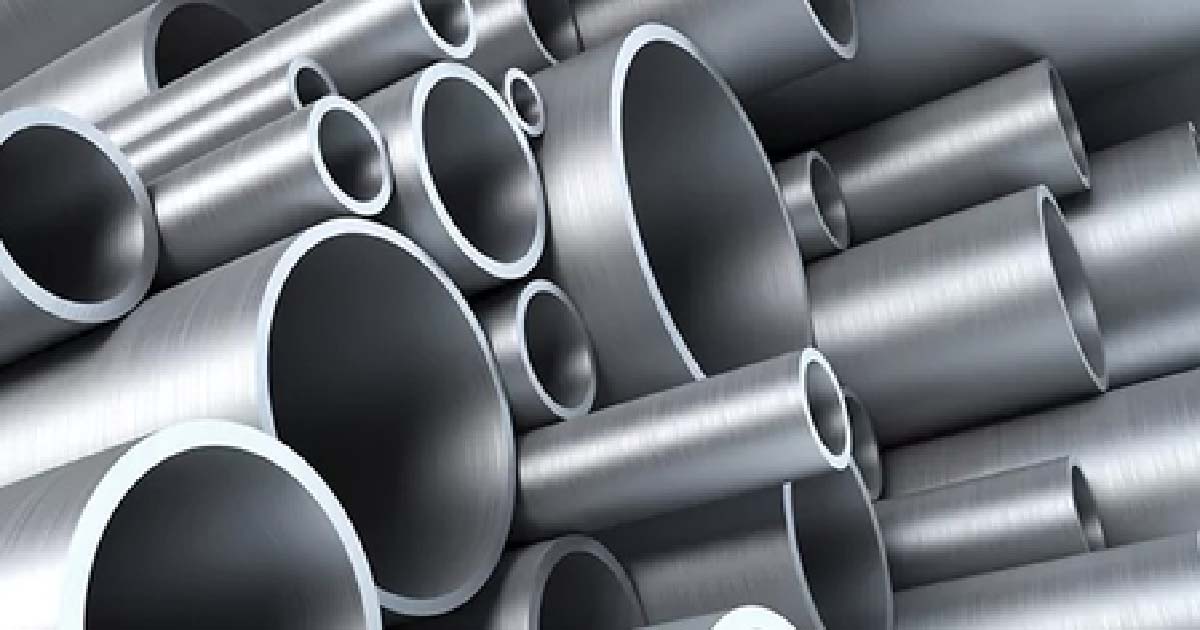Business
Sterlite Copper’s exit from TN gives bad signal for new investors

The decision of Vedanta Ltd to sell its 4,00,000 ton per annum (tpa) copper smelter plant and refining complex at Tuticorin gives a bad signal for any prospective investors in the city as well as in Tamil Nadu, said businessmen.
The copper smelter plant complex is known as Sterlite Copper.
They also said investors would think twice before investing in Tuticorin.
“The protest against the Sterlite Copper’s closure three years back is well known now the world over. With the company’s decision to sell its plant and other assets, new investors may not come to Tuticorin,” I. Lenin, President, Thoothukudi Industrial Suppliers Association told IANS.
Vendors to Sterlite Copper were taken by surprise at the smelter plant’s sell off announcement by Vedanta on Monday.
“The transport industry has been severely affected ever since Sterlite Copper was closed down in 2018. About 400 lorry owners were impacted and many were forced to reduce their fleet size by selling the trucks,” S. Murugan, Joint Secretary, Thoothukudi Lorry Owners Association, told IANS.
Not only the lorry operators, but also several others like the labourers, shops, servants, provision stores, local transport operators were also affected by the closure of the copper smelter plant, Murugan added.
Businessmen said three thermal power plants and a couple of other factories in Tuticorin were not functional for a long time and it was the business from Sterlite Copper that sustained them.
“We used to change our truck tyres every three months when Sterlite Copper was functional, which means the tyre industry too did well,” Murugan remarked.
Lenin and Murugan said the Tamil Nadu government could have offered Vedanta an alternate site for relocating the smelter plant.
The businessmen also said Tuticorin may not be an attractive investment destination following the Sterlite Copper episode.
“The state government should have taken stringent action in case of environment violations and should have allowed Sterlite Copper to function,” Murugan and Lenin said.
The exit of Sterlite Copper from Tuticorin will give a boost to the non-government organisations (NGO) to start targeting other major industries in the state.
Further the Sterlite Copper episode will also deter future investors from investing in Tuticorin where a new furniture park is being set up, businessmen in Tuticorin added.
Tamil Nadu Chief Minister M.K. Stalin had laid the foundation stone for the 1,156 crore furniture park. The government expects the furniture park to attract about Rs 4,500 crore investment.
On Monday, Vedanta along with Axis Capital had called for Expression of Interest (EoI) for its smelter complex (primary and secondary), sulphuric acid plant, copper refinery, continuous copper rod plant, phosphoric acid plant, effluent treatment plant, 160 MW captive power plant, reverse osmosis units, oxygen generation unit and residential complex with amenities.
According to Vedanta, the plant produces about 40 per cent of the country’s demand for copper and contributes about Rs 2,500 crore per annum to the exchequer and 12 per cent of Tuticorin Port’s revenue.
Vedanta said the closure of Tuticorin copper smelter plant has had a ripple effect in terms of imports and livelihoods.
“Post closure, India has become a net importer of copper for the first time in 18 years, with copper imports growing 3X while exports have plunged by 90 per cent. We are continuing to explore all legal avenues towards achieving a sustainable solution to the closure,” the company had said.
The Tamil Nadu government had ordered the copper smelter plant to be shut down in 2018 following a violent protest that led to the death of 13 persons in police firing.
The 4,00,000 ton Sterlite Copper smelter plant that has been operating in Tuticorin for over 25 years with a cumulative investment of about Rs 3,000 crore.
Business
Commercial LPG cylinder prices reduced across metros from November 1

New Delhi, Nov 1: State-run oil marketing companies have reduced commercial LPG cylinder prices across metros, offering a slight relief to businesses, starting from Saturday.
The move will provide marginal relief to thousands of small and medium-sized businesses.
According to the latest revision announced by state-run oil marketing companies (OMCs), the 19-kg commercial LPG cylinder will now cost Rs 1,590.50 in Delhi, reflecting a Rs 5 cut from the previous rate of Rs 1,595.50.
With the highest drop of Rs 6.50 per cylinder among the metros, the charge in Kolkata will now be Rs 1,694 per cylinder. Chennai will now charge Rs 1,750 (down Rs 4.50), while Mumbai now charges Rs 1,542 (down Rs 5).
For businesses that depend significantly on LPG for their everyday operations, like restaurants, hotels, and catering services, the most recent revision provides a small reprieve following a hike of Rs 15.50 that was put into effect late in September.
However, domestic LPG prices have not changed and are the same in every city.
Earlier in September, OMCs had reduced the price of commercial LPG gas cylinders by Rs 51.50. Following the revision, a 19-kg commercial LPG cylinder in Delhi was available at Rs 1,580.
Earlier, OMCs had reduced the price of a 19 kg commercial LPG gas cylinder by Rs 33.50. Before that, prices had been reduced by Rs 58.50 on July 1.
Earlier in June, oil firms had announced a Rs 24 cut for commercial cylinders, setting the rate at Rs 1,723.50. In April, the price stood at Rs 1,762. February saw a small Rs 7 reduction, but March reversed this slightly with a Rs 6 increase.
Meanwhile, the Centre had announced to provide 2.5 million free LPG connections under the Pradhan Mantri Ujjwala Yojana (PMUY) during the festival season.
Business
Nifty, Sensex end 4-week winning streak amid profit booking

Mumbai, Nov 1: Indian equity benchmarks ended their four-week winning streak, closing marginally lower this week amid profit-booking and mixed global cues.
Benchmark indices Nifty and Sensex dipped 0.65 and 0.55 per cent during the week to close at 25,722 and 83,938, respectively.
Market optimism was bolstered during the first three sessions by positive domestic economic data and China’s approval for few Indian companies to import rare earth magnets.
However, sentiment turned cautious after the US Federal Reserve cut its benchmark interest rate by 25 basis points to the 3.75 per cent–4 per cent range.
“India’s industrial output rose 4 per cent YoY in September 2025, supported by strong manufacturing activity. The US Federal Reserve hinted that the 25-bps cut might be the final one in 2025, which dampened hopes of further near-term easing,” said Ajit Mishra- SVP, Research, Religare Broking Ltd.
Further, steady corporate earnings and continued FII inflows through October helped cushion the downside, he added.
Metals, energy and realty stocks were the major contributors to the rally, while auto, pharma and IT stocks experienced profit-taking.
“While PSU banks surged on reports of a potential hike in foreign investment limits, metal counters gleamed on renewed optimism after China’s pledge to rein in steel overcapacity and signs of progress in US-China trade talks,” added Vinod Nair, Head of Research, Geojit Investments Limited.
Analysts said that capital market stocks lost momentum as SEBI’s proposed overhaul of TER structures weighed on sentiment.
Support for the Nifty is currently located close to the 25,600 zone and the 25,400 zone, while resistance is seen around 26,100, analysts said.
In the upcoming holiday-shortened week, investors are looking for cues from the final readings of the HSBC Manufacturing PMI and HSBC Services and Composite PMI data.
Investors are also keen on the India-US trade deal and trends in developed markets, while on the earnings front, several index heavyweights are set to announce their quarterly results.
Business
India aims 300 million tonnes of crude steel production capacity by 2030

New Delhi, Oct 31: India aims to achieve 300 million tonnes of crude steel production capacity by 2030, Union Minister of State for Steel, Bhupathiraju Srinivas Varma, said on Friday.
In a meeting with Sara Modig, State Secretary to Minister for Energy, Business and Industry, Sweden, here, in presence of Swedish Ambassador to India Jan Thesleff and other officials, the minister highlighted India’s growing steel sector, driven by visionary leadership of Prime Minister Narendra Modi.
Notably, India’s domestic steel demand is growing at an impressive 11-13 per cent, fuelled by large-scale infrastructure projects, while global demand faces a slowdown, according to Steel Ministry.
The discussions were held to explore collaboration opportunities in the field of research and development in Green Steel production and other advanced technologies to reduce carbon emissions.
Varma reaffirmed the invitation extended to Sweden to participate in Bharat Steel 2026, an International Conference-cum-Exhibition dedicated to the steel industry, scheduled to be held on April 16–17, 2026, at Bharat Mandapam, New Delhi.
Meanwhile, the growth rate of India’s eight core industries was recorded at 3 per cent in September this year compared to the same month of the previous year, with the steel and cement sectors recording strong growth during the month, data released by the Commerce and Industry Ministry showed.
Steel production surged by a robust 14.1 per cent in September compared to the same month of the previous year on the back of increased demand from big-ticket infrastructure projects being carried out by the government. The cumulative growth of steel during April to Sept of 2025-26 increased by 11 per cent over the corresponding period of the previous year.
The government imposed a 12 per cent temporary safeguard duty on certain steel imports in April 2025 to protect the domestic market. These measures follow previous actions and are part of ongoing efforts to safeguard the industry while promoting self-reliance under initiatives like ‘Make in India’.
-

 Crime3 years ago
Crime3 years agoClass 10 student jumps to death in Jaipur
-

 Maharashtra1 year ago
Maharashtra1 year agoMumbai Local Train Update: Central Railway’s New Timetable Comes Into Effect; Check Full List Of Revised Timings & Stations
-

 Maharashtra1 year ago
Maharashtra1 year agoMumbai To Go Toll-Free Tonight! Maharashtra Govt Announces Complete Toll Waiver For Light Motor Vehicles At All 5 Entry Points Of City
-

 Maharashtra1 year ago
Maharashtra1 year agoFalse photo of Imtiaz Jaleel’s rally, exposing the fooling conspiracy
-

 National News1 year ago
National News1 year agoMinistry of Railways rolls out Special Drive 4.0 with focus on digitisation, cleanliness, inclusiveness and grievance redressal
-

 Maharashtra12 months ago
Maharashtra12 months agoMaharashtra Elections 2024: Mumbai Metro & BEST Services Extended Till Midnight On Voting Day
-

 National News1 year ago
National News1 year agoJ&K: 4 Jawans Killed, 28 Injured After Bus Carrying BSF Personnel For Poll Duty Falls Into Gorge In Budgam; Terrifying Visuals Surface
-

 Crime1 year ago
Crime1 year agoBaba Siddique Murder: Mumbai Police Unable To Get Lawrence Bishnoi Custody Due To Home Ministry Order, Says Report












